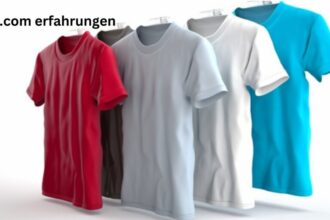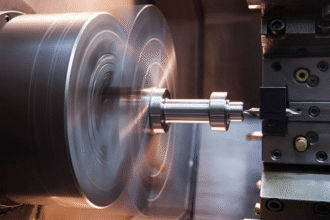The supplement and nutrition industry is evolving at an unprecedented pace. As health-conscious consumers demand more transparency, innovation, and sustainability, manufacturers are transforming how products are made and delivered. Behind this evolution stands the modern Powder Manufacturer — adapting to global trends, advanced technologies, and shifting market expectations that define the new era of wellness.
The Changing Face of Supplement Manufacturing
The supplement industry is projected to surpass $250 billion globally by 2025. This explosive growth is fueled by increased awareness about preventive health, personalized nutrition, and fitness-oriented lifestyles. To keep up, powder manufacturers must now operate at the intersection of science, technology, and sustainability.
Gone are the days of one-size-fits-all supplements. Modern consumers expect products tailored to their unique needs — from plant-based proteins to nootropic blends that enhance focus and cognitive health. Manufacturers worldwide are responding by reformulating, rebranding, and rethinking production processes to stay competitive.
Trend #1: Personalized Nutrition Becomes Mainstream
One of the biggest shifts reshaping powder production is the rise of personalized nutrition. Consumers no longer want general-purpose supplements; they want solutions customized for age, lifestyle, and specific health goals.
Manufacturers are now using advanced data analytics, AI insights, and ingredient profiling to develop formulas that meet these individualized demands. Personalized powders — for example, energy mixes for athletes or sleep support blends for busy professionals — are quickly becoming the standard in supplement innovation.
Trend #2: The Growth of Plant-Based and Clean Label Products
Clean-label and plant-based formulas have become a global standard rather than a niche trend. Consumers are rejecting artificial additives, synthetic colors, and unnecessary fillers. Instead, they’re looking for transparency — ingredient lists they can pronounce and trust.
Powder manufacturers are responding by sourcing natural proteins (pea, hemp, rice), organic sweeteners, and eco-certified raw materials. Clean-label formulations aren’t just healthier — they enhance brand trust and appeal to environmentally conscious consumers who value purity and ethical sourcing.
Trend #3: Sustainability and Eco-Friendly Manufacturing
Sustainability has evolved from a marketing buzzword into a critical business principle. Manufacturers are integrating renewable energy systems, recyclable packaging, and zero-waste production methods to reduce their environmental impact.
This transformation isn’t just ethical; it’s strategic. Sustainable production reduces long-term costs, meets global compliance requirements, and aligns with the expectations of eco-aware consumers. Forward-thinking powder producers view sustainability as both a moral responsibility and a business advantage.
Trend #4: AI and Automation in Quality Assurance
Artificial intelligence and automation have revolutionized supplement manufacturing. In 2025, many facilities operate with real-time monitoring systems that oversee every production step — from ingredient weighing to blending precision.
AI algorithms detect potential inconsistencies early, ensuring that every batch maintains the same quality, texture, and flavor. Automated equipment also reduces human error, speeds up production, and maintains strict hygiene standards. This high-tech precision allows manufacturers to scale quickly while maintaining absolute reliability.
Trend #5: Global Supply Chain Resilience
The pandemic years revealed just how fragile global supply chains could be. In response, manufacturers have diversified their sourcing strategies, established regional distribution hubs, and partnered with local suppliers to ensure uninterrupted production.
By balancing global and regional supply networks, manufacturers can minimize delays, maintain ingredient availability, and keep prices stable — even during global disruptions. This strategic flexibility has become a defining factor of success in 2025’s global supplement market.
Trend #6: Rise of Functional and Lifestyle Powders
Beyond traditional protein and vitamin supplements, the market now favors functional powders designed for specific lifestyle benefits. Adaptogenic blends, cognitive enhancers, hydration powders, and immune boosters are now leading categories.
This diversification reflects a deeper consumer shift — from short-term fitness to long-term wellness. Manufacturers that understand this mindset and offer innovative functional solutions are setting the pace for the entire industry.
Trend #7: The Role of Transparency and Traceability
Modern consumers want proof — not promises. Certifications, QR codes, and blockchain-based tracking now enable customers to trace ingredients back to their origin.
A professional Powder Manufacturer plays a crucial role here, offering full documentation for ingredient sourcing, lab testing, and compliance. This transparency not only builds consumer trust but also meets the tightening global regulatory requirements surrounding supplements.
Trend #8: Expansion of Contract Manufacturing Partnerships
As global demand grows, many supplement brands — especially startups and mid-sized companies — are turning to contract manufacturing partners. These collaborations allow brands to leverage professional expertise, advanced facilities, and economies of scale without heavy capital investment.
Manufacturers that offer end-to-end solutions — from formulation and testing to packaging and distribution — are becoming key enablers of growth in the nutrition industry. This trend benefits both sides: brands can scale efficiently, while manufacturers strengthen their reputation and market reach.
Trend #9: Integration of Smart Packaging
Another major innovation shaping powder products is smart packaging. New-age packaging solutions include QR codes for ingredient verification, freshness indicators, and even embedded NFC chips for authenticity validation.
This not only enhances consumer experience but also adds a layer of protection against counterfeiting. For manufacturers and brands alike, packaging innovation has become an extension of product quality.
Trend #10: Global Compliance and Regulatory Alignment
International supplement trade is more regulated than ever. Each region — from the U.S. to the EU to Asia-Pacific — has unique labeling, safety, and ingredient rules. Global manufacturers must stay updated with these regulations to ensure compliance across all markets.
Manufacturers who invest in regulatory expertise can help brands navigate international expansions smoothly. This alignment builds confidence among distributors and consumers alike, ensuring products meet every safety benchmark before hitting shelves.
The Future Outlook: Smarter, Cleaner, and More Collaborative
As technology continues to merge with nutrition science, the future of powder manufacturing will focus on personalization, automation, and sustainability. Collaboration between brands and manufacturers will become even more vital — creating an ecosystem where innovation thrives.
Companies like Jiabei Supplement are already leading this transformation, combining advanced formulation, ethical sourcing, and automation to set new standards in supplement excellence. Their approach proves that efficiency and responsibility can coexist, redefining what modern manufacturing looks like in 2025 and beyond.
Final Thoughts
The global supplement industry is entering a new era — one shaped by innovation, data, and environmental consciousness. The success of any supplement brand now depends on its ability to adapt to these changes and choose manufacturing partners who share the same forward-thinking vision.
By partnering with a progressive Powder Manufacturer, brands can stay ahead of global trends, meet evolving consumer demands, and deliver products that represent quality, transparency, and sustainability. The future belongs to those who innovate — and the manufacturers who help them do it right.
















